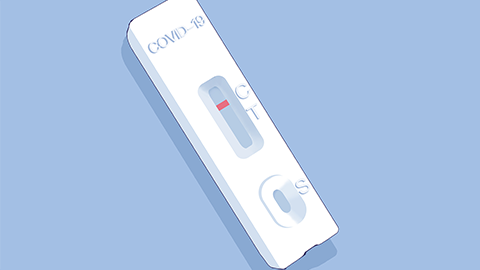Why are false positives more common in antigen tests?
Generally, the main reasons for false-positive results in antigen testing include improper operation leading to sample contamination, presence of interfering substances in the body, quality issues with the test kits, abnormal testing environmental temperature, and cross-reactions caused by infections of other pathogens. If there is any doubt about the test result, it is recommended to promptly verify it through nucleic acid testing. The detailed explanations are as follows:
1. Sample contamination due to improper operation
Failure to properly clean hands before sampling, contact of sampling tools with other objects, or contamination during sample processing may lead to false-positive results. Before testing, wash your hands thoroughly with soap or hand sanitizer, strictly follow the instructions, avoid touching non-testing areas with the sampling tools, and ensure the purity of the sample.
2. Presence of interfering substances in the body
Some proteins, metabolites, and other interfering substances in the body might undergo non-specific binding with the test reagents, resulting in a false-positive result. Avoid taking medications that may affect the test before testing. If you are currently on medication, consult your doctor whether to delay testing. Additionally, it is advisable to remain fasting or wait for one hour after eating before collecting the sample.

3. Quality issues with the test kits
Some test kits may have manufacturing processes that do not meet standards, improper storage leading to reagent failure, or contain cross-reactive substances, making them prone to false positives. When purchasing test kits, choose products from reputable manufacturers, check the production date and expiration date, store them properly at low temperatures or away from light as instructed, to prevent reagent degradation.
4. Abnormal testing environmental temperature
Excessively high or low environmental temperatures during testing can affect the stability and reaction efficiency of the reagents, causing deviations in test results and potentially leading to false positives. Ensure the ambient temperature is within the range specified by the test kit, typically between 15–30°C, and avoid performing tests under extreme temperature conditions.
5. Cross-reaction caused by infection of other pathogens
Infection with certain pathogens that have structural similarities to the target antigen, such as other coronaviruses, bacteria, etc., may cause cross-reactions with antibodies in the test reagents, resulting in false-positive results. If a false-positive result occurs along with symptoms of discomfort, targeted tests such as nucleic acid testing or bacterial culture can be conducted under a doctor's guidance. After identifying the type of infection, appropriate medications can be used for treatment—for bacterial infections, drugs such as Amoxicillin Capsules, Cefuroxime Axetil Tablets, or Roxithromycin Dispersible Tablets may be prescribed.
In daily life, it is important to learn the correct antigen testing procedures, properly store and use test kits according to instructions, maintain a suitable testing environment to avoid interference factors, and promptly verify questionable results using more accurate testing methods to ensure accuracy.







